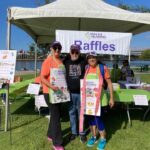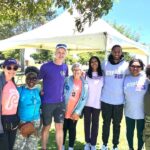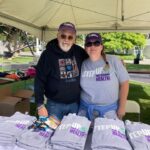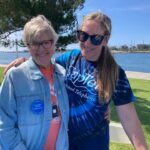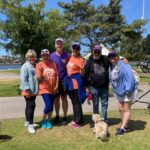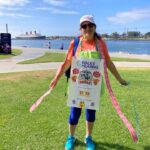Topic: Learning all the great benefits of CTAP!
Date: Saturday, August 27, 2022
Where: Online Zoom Meeting
Time: 10 a.m. – 11 a.m. PT
Audience: Open to all for this free event. Please pass along this invite to others!
 The California Telephone Access Program (CTAP) is an invaluable service that many individuals are unaware of or don’t fully understand the free services they may be entitled to. CTAP products are geared to meet many needs including telephones, amplifiers, ring-signal, speech devices, headsets, and many accessories. So much help is available, you just need to ask!
The California Telephone Access Program (CTAP) is an invaluable service that many individuals are unaware of or don’t fully understand the free services they may be entitled to. CTAP products are geared to meet many needs including telephones, amplifiers, ring-signal, speech devices, headsets, and many accessories. So much help is available, you just need to ask!
Please join us as Oskar Aguilar, from CTAP, will explain the program and benefits and get your questions answered. This service could make a difference for you and others you care about that could benefit.
REGISTER
Presenter:
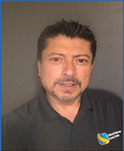
Oskar A Aguilar
Outreach Specialist
California Telephone Access Program
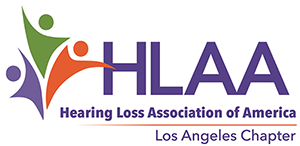
 The U.S. Department of Labor wants feedback from persons who are deaf or with hearing loss and their experience accessing employment services through
The U.S. Department of Labor wants feedback from persons who are deaf or with hearing loss and their experience accessing employment services through 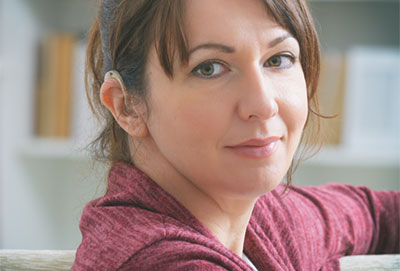
 The California Telephone Access Program (CTAP) is an invaluable service that many individuals are unaware of or don’t fully understand the free services they may be entitled to. CTAP products are geared to meet many needs including telephones, amplifiers, ring-signal, speech devices, headsets, and many accessories. So much help is available, you just need to ask!
The California Telephone Access Program (CTAP) is an invaluable service that many individuals are unaware of or don’t fully understand the free services they may be entitled to. CTAP products are geared to meet many needs including telephones, amplifiers, ring-signal, speech devices, headsets, and many accessories. So much help is available, you just need to ask!
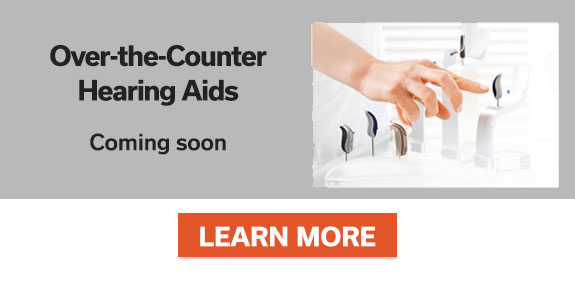
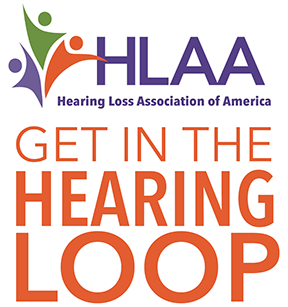 Google Maps has recently begun including hearing loops in the accessibility information on its website. This has received little notice from the national media or hearing loss–related entities but, for the hard of hearing, this is important news. A national database of looped venues has been a goal of hearing loop advocates for years and it’s finally becoming a reality. This action, a joint undertaking of the Get in the Hearing Loop Committee (GITHL) of the Hearing Loss Association of America (HLAA) and Google Maps, is the latest example of the growing awareness and availability of hearing loops in public places.
Google Maps has recently begun including hearing loops in the accessibility information on its website. This has received little notice from the national media or hearing loss–related entities but, for the hard of hearing, this is important news. A national database of looped venues has been a goal of hearing loop advocates for years and it’s finally becoming a reality. This action, a joint undertaking of the Get in the Hearing Loop Committee (GITHL) of the Hearing Loss Association of America (HLAA) and Google Maps, is the latest example of the growing awareness and availability of hearing loops in public places. Check out this feel-good story about how a simple act of providing a hearing aid to someone in need can dramatically change their lives. Thanks to Starkey Cares, they helped make a huge and positive impact for Branden Thibodeau, a Special Olympics softball player.
Check out this feel-good story about how a simple act of providing a hearing aid to someone in need can dramatically change their lives. Thanks to Starkey Cares, they helped make a huge and positive impact for Branden Thibodeau, a Special Olympics softball player. Hearing Loss Association of America (HLAA) has an annual fundraiser and raising awareness for hearing loss event called
Hearing Loss Association of America (HLAA) has an annual fundraiser and raising awareness for hearing loss event called 